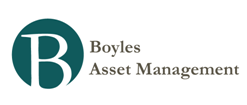How Do We Identify Good Ideas? - By Jonah Lehrer
I think there's an investing checklist item to be developed from this article, specifically related to this: "So yes: taking a break is important. But make sure you do something that makes you happy, as positive moods make us even better at diagnosing the value of our creative work. After a few relaxing days of vacation, you’ll suddenly know which new ideas deserve more time and which need to be abandoned."
I’ve always been fascinated by the failures of genius. Consider Bob Dylan. How did the same songwriter who produced Blood on the Tracks and Blonde on Blonde also conclude that Down in the Groove was worthy of release? Or what about Steve Jobs: what did he possibly see in the hockey puck mouse? How could Bono not realize that Spiderman was a disaster? And why have so many of my favorite novelists produced so many middling works?
The inconsistency of genius is a consistent theme of creativity: Even those blessed with ridiculous talent still produce works of startling mediocrity. (The Beatles are the exception that proves the rule, although their subsequent solo careers prove that even Lennon and McCartney were fallible artists.) The larger point is that mere imagination is not enough, for even those with prodigious gifts must still be able to sort their best from their worst, sifting through the clutter to find what’s actually worthwhile.
Nietzsche stressed this point. As he observed in his 1878 book Human, All Too Human:
“Artists have a vested interest in our believing in the flash of revelation, the so-called inspiration…shining down from heavens as a ray of grace. In reality, the imagination of the good artist or thinker produces continuously good, mediocre or bad things, but his judgment, trained and sharpened to a fine point, rejects, selects, connects…All great artists and thinkers are great workers, indefatigable not only in inventing, but also in rejecting, sifting, transforming, ordering.”
Notice the emphasis on rejection. Nietzsche eloquently describes the importance of not just creating but recognizing the value of what has been created.
- Talent...
My friend Shane over at Farnam Street posted an interesting interview excerpt with a quote by Kirby Ferguson about talent that I thought was interesting, and that matched well with a Malcolm Gladwell quote I had posted previously. Both quotes are below....
- Jonah Lehrer On Econtalk
Jonah Lehrer, staff writer for The New Yorkerand author of Imagine: How Creativity Works, talks with EconTalk host Russ Roberts about the science of creativity. They discuss focusing vs. ignoring as a way to solve problems, the potential for computer-based...
- Groupthink - By Jonah Lehrer
In the late nineteen-forties, Alex Osborn, a partner in the advertising agency B.B.D.O., decided to write a book in which he shared his creative secrets. At the time, B.B.D.O. was widely regarded as the most innovative firm on Madison Avenue. Born in...
- Focus (quotes From Steve Jobs And Ray Dalio)
“People think focus means saying yes to the thing you’ve got to focus on. But that’s not what it means at all. It means saying no to the hundred other good ideas that there are. You have to pick carefully. I’m actually as proud of the things...
- How To Get A Real Education - By Scott Adams
Great article with great advice. Thanks to Will for passing this along. I understand why the top students in America study physics, chemistry, calculus and classic literature. The kids in this brainy group are the future professors, scientists, thinkers...

